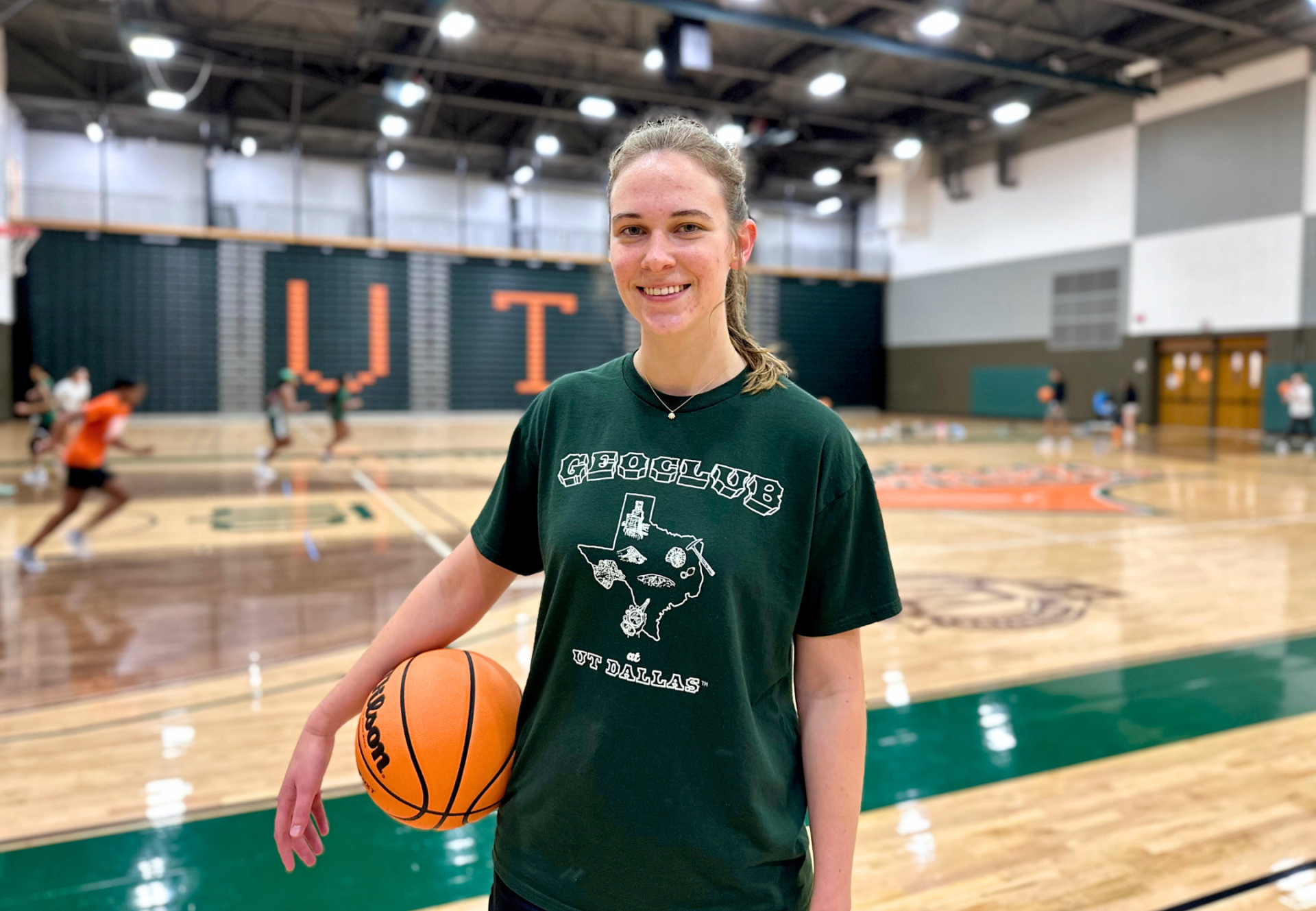
Growing up in Boise, Idaho, Mia Rudin developed a strong connection to nature from a young age. When she moved to Commerce, Texas, during high school, she quickly found her stride on the basketball court. Now a successful student-athlete at UT Dallas, Rudin found a place where her passion for sports and the outdoors could be harnessed in tandem.
I started at UT Dallas as a biology major, but quickly realized I wasn’t passionate about it. I had always been interested in plants and thought I could study soils, so I switched my major to geosciences. In one of my first classes, I held an iron meteorite in my hands, and it was love at first sight with planetary science. Somebody in the class said, ‘You know, there’s meteorites that are older than the Earth.’ And it was almost like a spiritual experience for me. That set a spark off in my brain and I was like, ‘I want to know about this.’ I am now looking into getting my PhD, and I couldn’t be happier.
I tell people that I’m one of the nerdiest basketball players ever! I’ve learned a lot in my classes, but I could write a book about what being a student-athlete has taught me about leadership, teamwork and myself. My teammates have enriched my life in so many ways at UT Dallas. They are all dream chasers, and it’s been inspiring to watch them grow not just as athletes, but as people. I’ve definitely made lifelong friends, and I’m grateful for that.
My project could not have been better aligned with my interest in planetary petrology. I worked with a staff scientist at the LPI, modeling the formation of alkaline basalts and crystallization at the Gale and Gusev crater on Mars. Besides being surrounded by scientists who are doing what I want to do one day, I was also surrounded by the next generation of planetary scientists who are just as passionate about the field as I am. I actually was rejected the first year I applied for the internship. The geosciences department at UT Dallas, though small, has always supported and encouraged me.
The biggest thing I had to learn, and am still learning, is that it’s okay to be wrong; especially as you are trying to be a better scientist. I’m learning that sometimes being wrong is a key step in solving technical problems. Also, as students, we sometimes feel like we aren’t good enough to chase some opportunities. But I have learned at UT Dallas that achieving the big things is absolutely possible.
Help us leave the planet a better place for future generations. Your support for the School of Natural Sciences and Mathematics funds scientific discoveries with real-world applications, student and faculty recruitment, and academic scholarships.